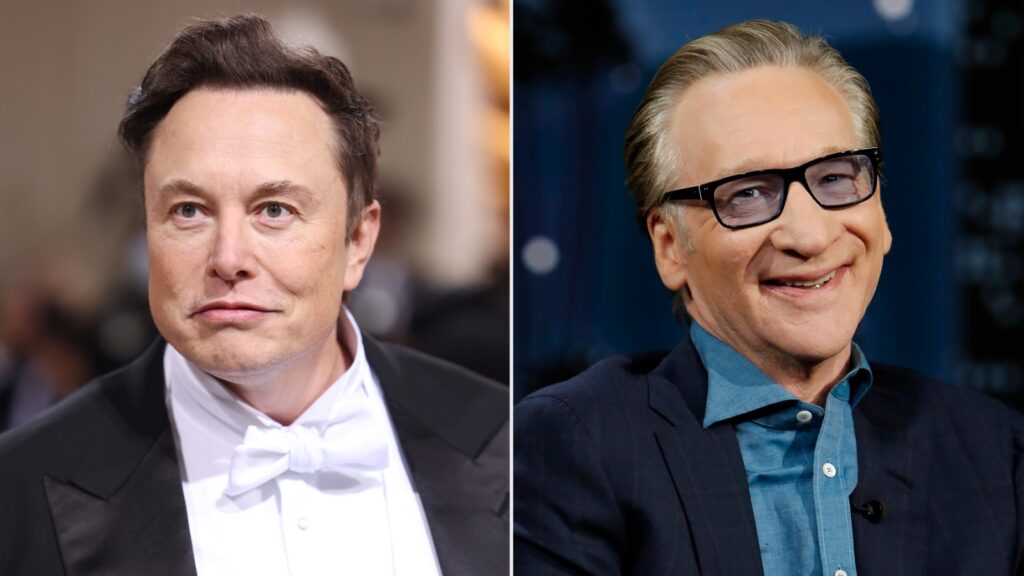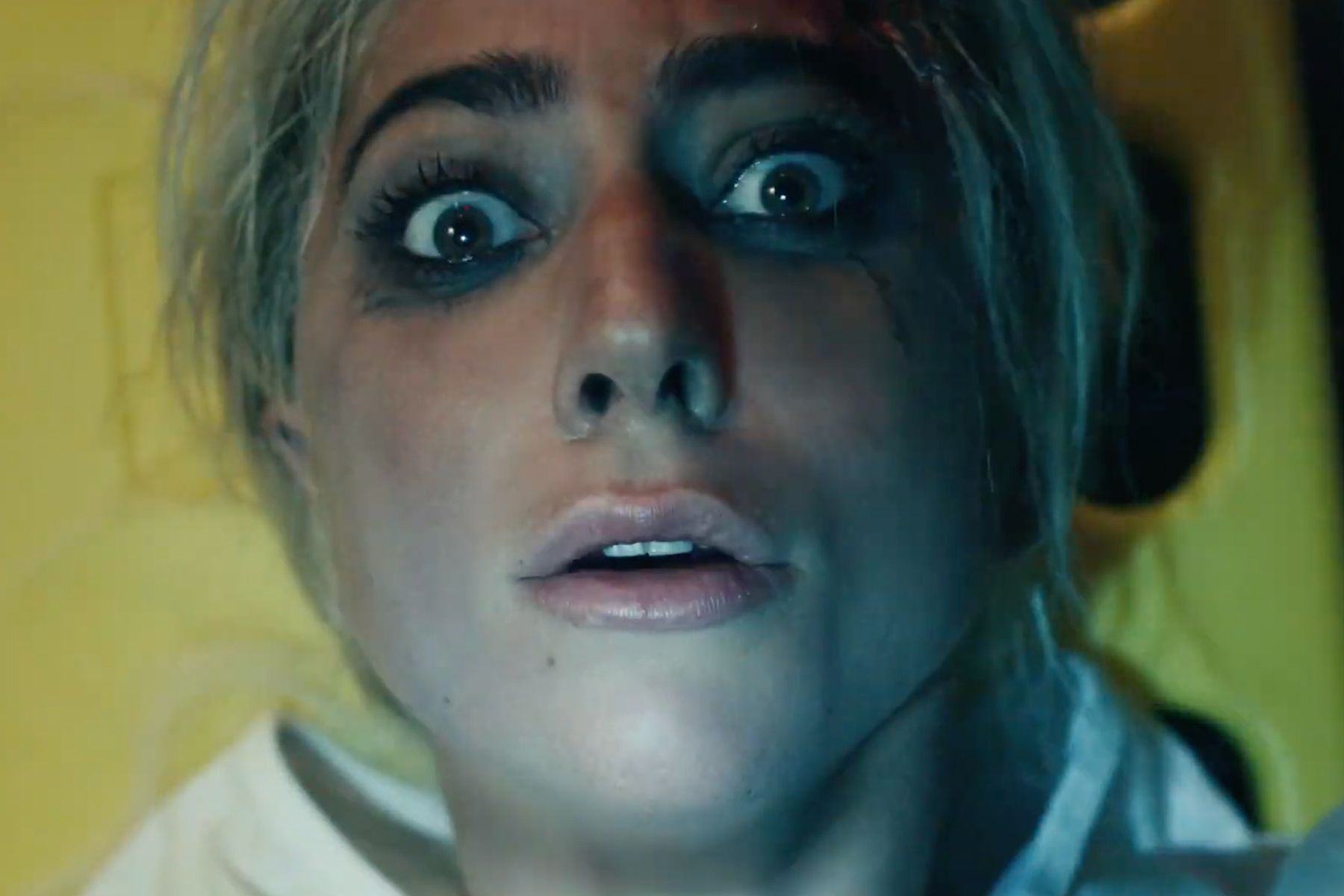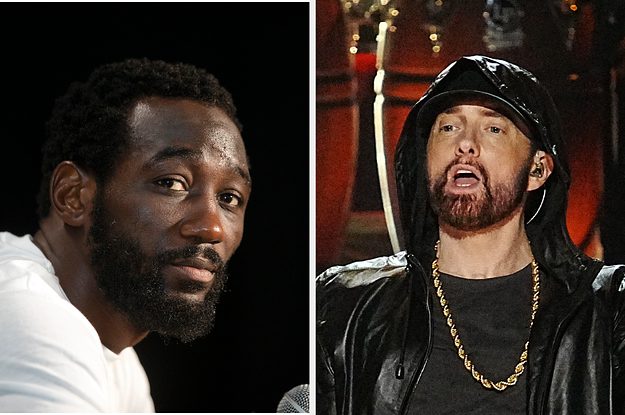
Elon Musk and Bill Maher Warn Against the ‘Woke Mind Virus,’ a.k.a. Historical Fact
After giving one of the last interviews Tucker Carlson would air before his unceremonious firing by Fox News, and a surprise sit-down with a BBC reporter, Elon Musk graced the studio of HBO’s Real Time with Bill Maher to further discuss his recent ups and downs as head of Twitter. Their conversation, which aired on Friday night, included a strained discussion of the imaginary “woke mind virus” that both men worry is ruining younger generations.
Maher introduced Musk as “the man who made the electric car a thing,” then added, “he also tweets a lot.” At the beginning of the interview, the compliments flowed freely, with Maher calling his guest a “genius” as well as a prime mover of history — who can also enjoy a laugh now and then. Musk professed his admiration for Maher’s show. “I love it that you have a sense of humor,” Maher said, contrasting him with Facebook CEO Mark Zuckerberg, “who I’m not even sure is a real boy.” Musk ate up the flattery, saying that he loves comedy, and referenced his own attempts to be funny online. When Maher said that Musk deals the cards of societal change, Musk answered, “I deal some memes, too,” cracking himself up as he pantomimed selling illicit goods from the inner folds of his jacket.
Maher was less effusive about Musk’s belief in the need to extensively procreate and flee the planet, saying it was one area where they disagreed. (On a recent episode of his aftershow Overtime, Maher and his guests discussed Musk’s ambition to get humanity to Mars. “I’m a Musk fan, generally, although he sometimes makes it hard,” Maher said. He also questioned the need for interplanetary travel in the first place, pointing out the extremely inhospitable climate on the surface of Mars.)
In Friday’s Real Time interview, Maher implied that having more babies was shortsighted given how Earth’s resources have already grown scarce, and “lots of people don’t have enough food or water.” Musk pushed back, saying, “Earth is 70 percent water by surface area.” Maher quipped: “But you can’t drink that.” When Musk protested that “desalination is absurdly cheap,” he countered, “Why don’t we do it, then?”
Maher also pressed Musk, on two separate occasions, to explain what he calls the “woke mind virus,” which the multi-company CEO perceives as an existential threat to civilization. Each time, Musk appeared to struggle with the question, at first declaring that the “virus” was anything “anti-meritocratic” or suppressive of free speech, complaining that “you can’t question things.” He equated it to “cancel culture,” noting that Maher has often faced criticism for his commentary.
In the second exchange, when Maher asked where the supposed “woke mind virus” comes from, Musk stammered even more, then said, “I think it’s been going on for a while. The amount of indoctrination that’s happening in schools and universities is I think far beyond what parents realize.” He shared an anecdote about a friend’s high school-aged children only knowing that George Washington was the first president of the United States and a slave owner — but nothing else about him. “That is the woke mind virus, exactly,” Maher said, before lightly defending slavery as something practiced by many societies and endorsed in the Bible. He also failed to challenge Musk’s description of students learning historical fact as “indoctrination.”
The pair did not significantly touch on the business of Tesla or SpaceX (though Maher caught himself saying that Musk “took over” the automaker and changed his phrasing), and only glancingly discussed the challenges of running Twitter. But Maher did appear to surprise Musk by referencing a 2017 Rolling Stone profile in which Musk said he couldn’t be happy without being love. “You can be half-happy, I suppose,” Musk said, explaining that you can only be fully happy if you have both a satisfying work life and romantic one.
Last week, Musk enjoyed a bromantic, wide-ranging interview on the since-canceled Fox News flagship program Tucker Carlson Tonight, aired over two evenings. At one point, the pair fretted about a nonexistent “population crisis” tied to declining birth rates, with Musk blaming “birth control, abortions, and whatnot.” Carlson suggested that the “urge to have sex and to procreate” has been somehow “subverted.” Musk and Carlson also bonded over fears of “politically correct” artificial intelligence.
One bombshell in their discussion was Musk’s unsubstantiated claim that before his takeover of Twitter, “government agencies effectively had full access to everything that was going on” at the tech giant, including user’s private direct messages. The comment played into the common false narrative that pre-Musk Twitter censored or was biased against conservatives. (In fact, research has shown that the platform’s algorithm tended to favor right-wing content.)
And earlier this month, Musk spoke to BBC reporter James Clayton in a live TV broadcast — with audio shared on Twitter Spaces — about the “painful” aspects of running Twitter, including mass layoffs and nights spent sleeping on a couch at the tech company’s San Francisco headquarters. In that conversation, Musk admitted that he’d completed his $44 billion acquisition of the social media giant because he believed his attempt to back out of the purchase would be rejected in court. (Twitter had sued him to close the deal after he tried to walk.)
But that interview was perhaps most notable for a viral moment in which Clayton brought up a well-documented rise in hate speech on Twitter since Musk’s takeover. The billionaire challenged the reporter to name a specific instance of harmful material, but Clayton didn’t. “You cannot give me a single example of hateful content, not even one tweet,” Musk said. “And yet you claimed that hateful content was high. That is false, you just lied.” Right-wing media and influencers framed the exchange in hyperbolically positive terms, in videos with titles like “Elon Musk DESTROYS BBC Reporter LIVE.”
Whether Musk’s public relation campaign will continue from here is unclear. So far, it’s a definite mixed bag — one interviewer fired, one embarrassed, and the third occasionally argumentative. But no matter the outcome of these conversations, they do seem to distract from the more serious problems at the companies Musk runs. Don’t be surprised if he’s back in front of the cameras soon.



